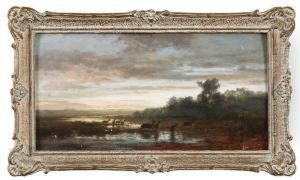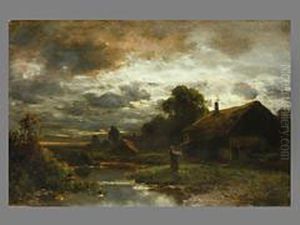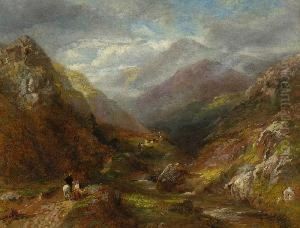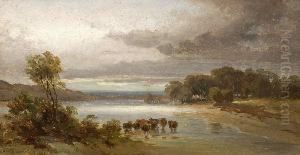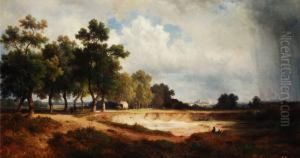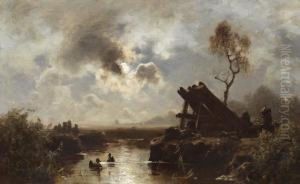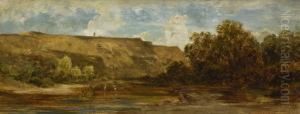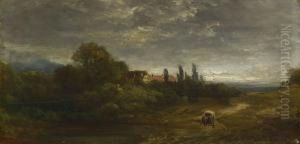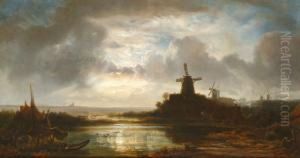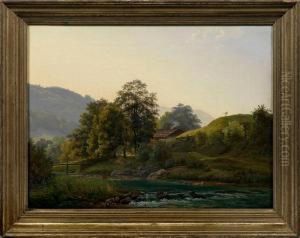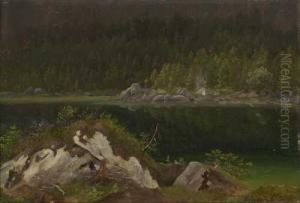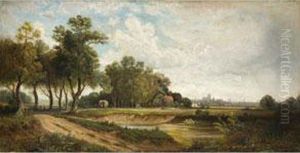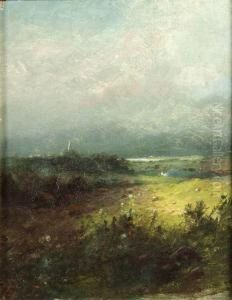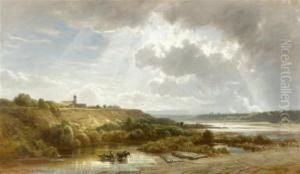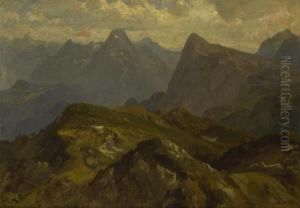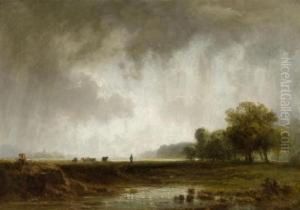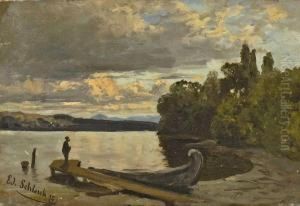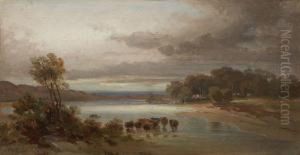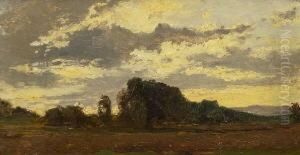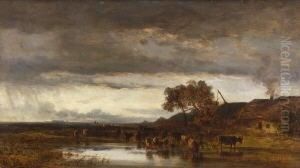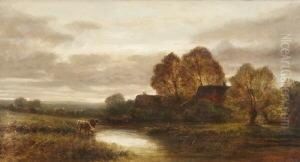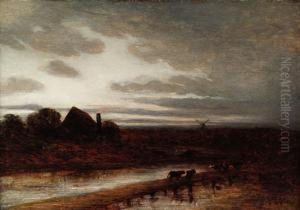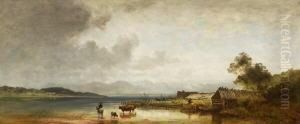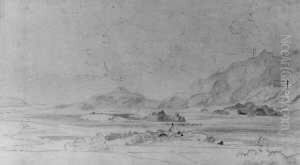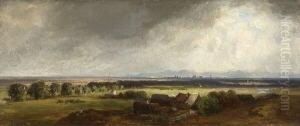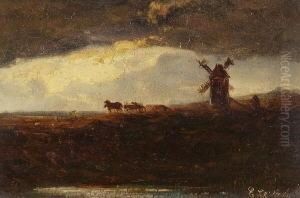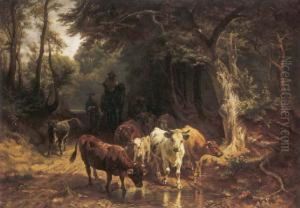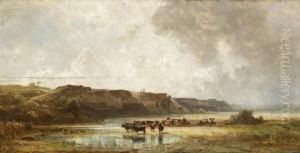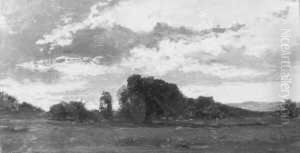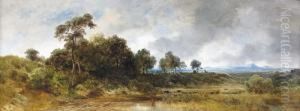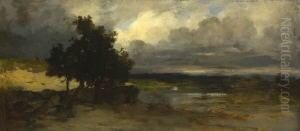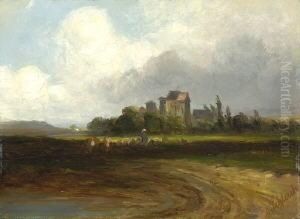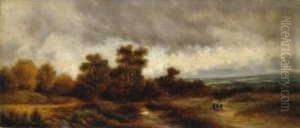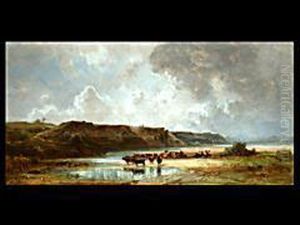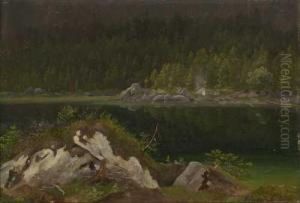Eduard I Schleich Paintings
Eduard Schleich the Elder, born on October 15, 1812, in Vilsbiburg, Bavaria, was a German landscape painter associated with the Munich School, a group of artists working in Munich in the 19th century who were connected by a desire for reform and innovation in art. Schleich was known for his atmospheric landscapes, which often featured a dramatic use of light and shadow and a romantic sensibility.
Initially, Schleich was self-taught, and his early works were influenced by the 17th-century Dutch landscape painters. He worked as a decorator and a fresco painter before fully devoting himself to landscape painting. His talent brought him to the attention of other artists, and he eventually gained the patronage of King Ludwig I of Bavaria, which allowed him to study the great works of landscape painting in the royal collections.
Schleich traveled extensively throughout Europe, particularly in Italy, where the landscape and light had a profound impact on his work. He was particularly drawn to the Italian countryside and the Alps, and his paintings from this period show a preoccupation with depicting the natural world in a realistic yet poetic manner. He became an honorary member of the Munich Academy in 1860 and was appointed a royal professor.
Despite his success, Schleich struggled with financial difficulties throughout his life. His work was well received, and he exhibited at various art exhibitions, including the Paris Salon, where he received a medal. Schleich's paintings are characterized by their meticulous detail, atmospheric effects, and a mood of solitude and tranquility. He often painted the same scene at different times of day or in different weather conditions to capture the changing atmosphere and light.
Eduard Schleich the Elder passed away on December 4, 1874, in Munich. His legacy includes a body of work that significantly influenced the Munich School and German landscape painting in the 19th century. His son, Eduard Schleich the Younger, also became a painter, although he did not achieve the same level of recognition as his father.
